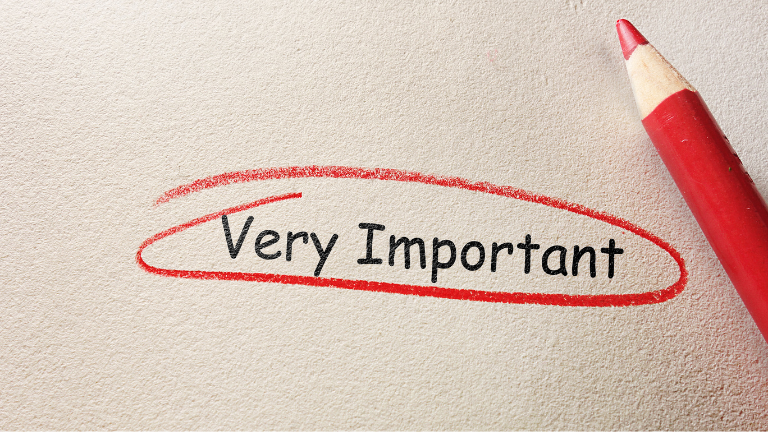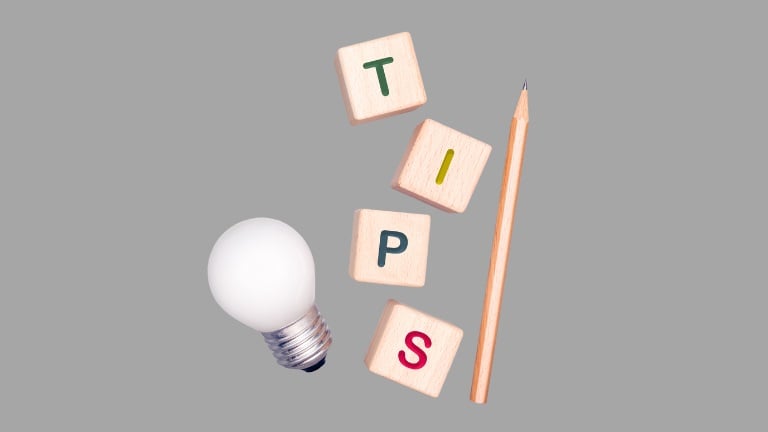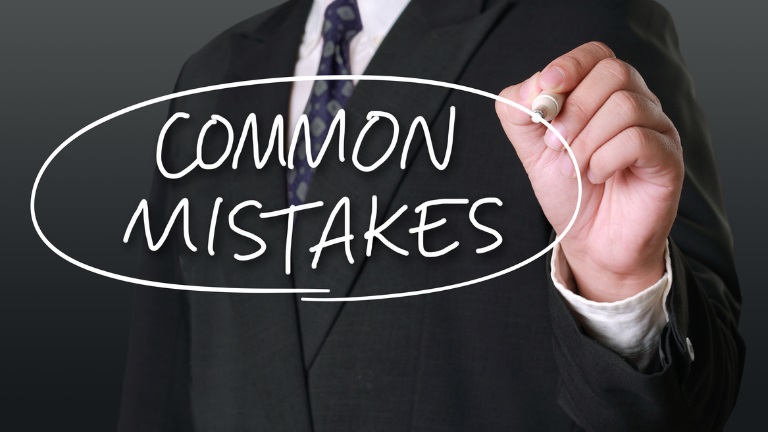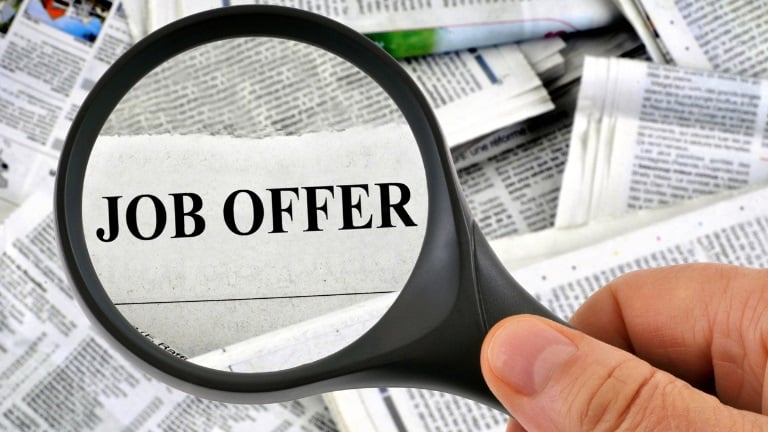In today’s competitive job market, making a great first impression during a job interview is crucial. Your first impression can significantly impact the hiring manager’s perception of you and ultimately determine the outcome of the interview process. With the right strategies and expert tips, you can enhance your chances of leaving a positive and lasting impression on potential employers. In this blog, we will explore the importance of first impressions in job interviews and provide you with seven valuable tips to elevate your interview game. By implementing these tips, you’ll be well on your way to securing your dream job. Good luck!

Importance of First Impressions in Job Interviews
First impressions hold great weight in the context of job interviews. As the saying goes, “You never get a second chance to make a first impression.” The initial few minutes of a job interview can set the tone for the rest of the conversation, making it essential to make your first impression count.
During a job interview, the hiring manager forms an impression of you based on various factors, such as your attire, body language, and communication style. A great first impression can make the hiring manager view you as a potential fit for the role, while a poor first impression can be difficult to overcome. Understanding the importance of first impressions in job interviews is the first step towards mastering the art of giving a good interview.
Understanding the Role of Non-verbal Communication
Non-verbal communication, including body language, facial expressions, and eye contact, plays a significant role in job interviews. It provides subtle cues about your confidence, professionalism, and engagement in the conversation. Paying attention to your non-verbal cues is crucial to creating a positive impression.
Maintaining good posture, making eye contact, and using appropriate facial expressions can convey confidence and attentiveness. Conversely, slouching, avoiding eye contact, or displaying negative facial expressions sends the wrong message to the hiring manager. By perfecting your non-verbal communication, you can convey your enthusiasm, interest, and professionalism, leaving a lasting positive impression.
The Power of a Positive Attitude
Your attitude can make all the difference in job interviews. Demonstrating an upbeat disposition during the interview process can create a lasting impression on the hiring manager. Employers value candidates who bring a positive mindset to the table, as it reflects their ability to handle challenges and contribute favourably to the workplace.
A positive attitude can influence how you present yourself, answer questions, and engage with the interviewer. It can also help you navigate difficult questions, showcase your qualifications, and leave a lasting impact. Cultivating and maintaining a good attitude throughout the interview process can set you apart from other candidates, increasing your chances of securing the job offer.

Pre-Interview Preparation Tips
Preparation is key when it comes to job interviews. Taking the time to prepare before the interview can significantly enhance your overall performance and boost your confidence. In this section, we will discuss two essential pre-interview preparation tips that can make a huge impact on your interview success.
Researching the Company in-depth
One of the most important things you can do before a job interview is to research the company in-depth. Understanding the company’s values, culture, mission, and vision is crucial for showcasing your genuine interest in the potential employer.
In-depth research allows you to tailor your responses to align with the company’s goals and values. It also enables you to ask informed questions during the interview, demonstrating your commitment and interest in the position. Comprehensive company research not only sets you apart from other candidates, but it also equips you with valuable insights that can help you make a positive impression during the interview process.
Practising Likely Interview Questions
Practising interview questions is another essential aspect of pre-interview preparation. Anticipating the questions the interviewer might ask and preparing thoughtful, well-articulated responses can significantly enhance your interview performance. Here are some steps you can take to ensure that you’ll always be prepared for any interview:
- Review the job description and identify key skills and qualifications required for the role.
- Prepare specific examples from your past experiences that highlight your relevant skills.
- Practice answering common interview questions such as “Tell me about yourself” or “Why are you interested in this position?”
- Use the STAR method (Situation, Task, Action, Result) to structure your responses and showcase your abilities effectively.
- Seek feedback from a trusted friend or mentor after conducting mock interview sessions to further refine your answers.
Planning Your Attire for the Interview
Planning your attire for the job interview is vital to creating the best possible impression. Your attire should align with the company’s dress code and culture while reflecting your professionalism and attention to detail.
- Research the company’s dress code in advance. Dress slightly more formal than the company’s dress code to show respect for the interview process.
- Choose attire that fits well, is clean, and appropriate for the occasion.
- Pay attention to small details such as grooming, accessories, and footwear.
- Dressing professionally shows your commitment to the interview process and the potential employer, leaving a positive impression from the moment you walk through the door.

Making the Right Impression at the Interview
Once you have made a great first impression with your non-verbal cues and positive attitude, it’s time to focus on the key points that will help you make the right impression throughout the rest of the interview. In this section, we will discuss three important elements that can contribute to a positive and lasting impression during the interview process.
Arriving on Time – A Sign of Respect and Dedication
Being punctual for the job interview is essential as it conveys your respect for the interviewer’s time and dedication to the opportunity. Arriving on time gives you a few moments to gather your thoughts, compose yourself, and make any final preparations before entering the interview room.
- Plan your route and factor in extra time for potential delays.
- Arriving early demonstrates your reliability and commitment to the interview process.
- Use the time before the interview to relax, review your notes, and mentally prepare yourself.
- Showing respect through punctuality sets a positive tone for the rest of the interview, allowing you to start the conversation on the right foot.
The Correct Body Language and Posture
Maintaining the correct body language and posture throughout the interview is crucial to convey confidence, professionalism, and engagement in the conversation. Your body language plays a significant role in shaping the interviewer’s perception of you.
- Maintain good posture by sitting up straight and avoiding slouching.
- Make eye contact with the interviewer to establish rapport and show attentive listening.
- Use open body language, such as uncrossed arms and relaxed facial expressions, to convey approachability and interest.
- Good posture and positive body language can enhance the impact of your verbal communication and leave a positive impression throughout the interview process.
Displaying Enthusiasm and Interest
Displaying genuine enthusiasm and interest in the job opportunity is important for creating a positive impression. Employers are looking for candidates who are excited about the role and motivated to contribute to the company’s success.
- Express your enthusiasm through your tone of voice, facial expressions, and body language.
- Show interest by actively listening to the interviewer and asking thoughtful questions.
- Research the company and the role beforehand to demonstrate your genuine interest during the interview.
- Engage with the interviewer, share relevant examples, and highlight how your skills align with the job requirements, leaving a positive impression of your enthusiasm and potential contribution.

Mastering the Art of Conversation During the Interview
Conversational skills are crucial when it comes to job interviews as they allow you to effectively communicate your qualifications, experiences, and fit for the role. Mastering the art of conversation can help you navigate the interview process with ease and confidence. In this section, we will explore three key elements of successful interview conversations.
Responding to Questions Confidently
Confidently responding to interview questions showcases your knowledge, expertise, and ability to think on your feet. It is important to answer questions with a confident tone, providing specific examples to support your responses.
- Take a moment to gather your thoughts before answering questions, maintaining composure and avoiding rambling or long pauses.
- Use the STAR method (Situation, Task, Action, Result) to structure your responses, highlighting your accomplishments, problem-solving skills, and relevant experiences.
- Speak clearly and concisely, ensuring your answers are relevant to the interviewer’s question.
- Display confidence through positive language, showcasing your qualifications and addressing any potential concerns the interviewer may have.
Asking Relevant Questions to the Interviewer
Asking thoughtful, relevant questions to the interviewer demonstrates your interest, preparedness, and engagement in the interview process. It also provides you with valuable insights to assess the company culture, team dynamics, and job expectations. Consider the following tips when formulating questions to ask the interviewer:
- Prepare questions in advance that align with your research of the company, job description, and interviewer’s background.
- Inquire about the company’s values, team structure, potential career growth, or the hiring process to demonstrate your interest and engagement.
- Use questions as an opportunity to showcase your understanding of the role, company, and industry.
- Listen actively to the interviewer’s responses, asking follow-up questions to deepen the conversation and highlight your curiosity.
Showcasing Your Skills and Qualifications Effectively
Effectively showcasing your skills and qualifications during the interview is crucial for creating a positive impression and demonstrating your fit for the job. Consider the following tips to effectively communicate your abilities:
- Highlight your relevant skills and qualifications confidently, tying them directly to the job description and the interviewer’s needs.
- Use specific examples and measurable accomplishments to illustrate your abilities and demonstrate the value you can bring to the company.
- Connect your skills and qualifications to the potential employer’s goals, showing how you can contribute to their success.
- Keep your responses concise and focused, ensuring the interviewer understands the key points that make you the right candidate for the job.

Post Interview Etiquette
After the interview, it is important to follow up with proper post-interview etiquette. This helps reaffirm your interest in the position, leave a positive impression, and maintain professionalism throughout the hiring process. In this section, we will discuss two important post-interview etiquette that will set you apart from other candidates.
Proper Farewell Manners
Ending the interview on a positive note and displaying proper farewell manners is important for leaving a lasting impression. Consider the following tips:
- End the interview with a firm handshake, maintaining eye contact, and using a friendly tone of voice.
- Thank the interviewer for their time, the opportunity to discuss the role, and any valuable information they shared.
- Express appreciation for the interviewer’s insights and the chance to learn more about the company.
- Leave a professional impression by conveying your excitement and interest in the potential next steps.
Importance of a Follow-up or Thank You Note
Following up with a personalised thank-you note is an important gesture that shows good manners and professionalism. It provides an opportunity to reiterate your interest, express gratitude, and leave a positive impression. Consider the following tips when writing a thank-you note:
- Send a thank-you email within 24 hours of the interview, addressing each interviewer individually.
- Express gratitude for the interviewer’s time, insights, and the opportunity to interview for the position.
- Reiterate your interest in the role and the company, emphasising specific points discussed during the interview.
- Showcase professionalism and attention to detail by reviewing the email for spelling and grammar errors.

Common Mistakes to Avoid During Job Interviews
Avoiding common mistakes during job interviews is essential for presenting yourself in the best possible light. By being aware of these pitfalls, you can increase your chances of interview success. In this section, we will discuss three common mistakes candidates should avoid.
Overdoing or Underdoing Formal Dressing
When it comes to dressing for interviews, striking the right balance is key. Overdoing or underdoing formal dressing can create a negative impression on the interviewer. Consider the following tips to dress appropriately for the interview:
- Research the company’s dress code and culture, and dress slightly more formal than their expectations.
- Avoid excessive accessories or attire that may distract the interviewer’s attention.
- Choose attire that fits well, is clean, and aligns with the company’s professional standards.
- Dressing appropriately showcases respect for the interview process and the potential employer, setting the right tone for the rest of the interview.
Not Being Fully Prepared for the Interview
Lack of preparation can significantly impact your interview performance. Adequate preparation ensures you present yourself confidently, answer questions thoughtfully, and ask relevant questions to the interviewer. Consider the following tips to be fully prepared for job interviews:
- Thoroughly research the company, job description, and interviewer’s background.
- Practice answering common interview questions, rehearsing specific examples from your experiences.
- Review your own qualifications and skills, ensuring they align with the job requirements.
- Dress according to the company’s dress code, as it reflects your professionalism and attention to detail.
- Prepare questions to ask the interviewer, demonstrating your interest and engagement in the interview process.

The Impact of your Digital Footprint on Job Interviews
In today’s digital age, your online presence can shape the impression potential employers have of you. Before extending a job offer, hiring managers often search for candidates online to gain further insights. In this section, we will discuss the impact of your digital footprint on job interviews and provide guidance on managing your online presence.
Managing Your Social Media Presence
Proactively managing your social media presence is essential to presenting a positive image to potential employers. Consider the following tips to ensure that your social media profiles align with your professional aspirations:
- Regularly monitor your social media accounts for any inappropriate content or images that may be viewed by potential employers.
- Set your privacy settings to restrict access to personal information if necessary.
- Showcase your professional accomplishments, such as certifications or work-related achievements, on platforms like LinkedIn.
- Demonstrate your professionalism and industry expertise by actively engaging with relevant content.
- Utilise social media as a tool to enhance your professional image, connecting with industry professionals, and expanding your network.
LinkedIn Profile – A Window to Your Professional Self
Your LinkedIn profile serves as a window to your professional self and is often the first impression potential employers have of you in an online context. Consider the following tips to optimise your LinkedIn profile:
- Ensure your profile picture is professional, presenting you in a positive light.
- Craft a compelling headline that showcases your unique value proposition and career objectives.
- Highlight your achievements, experiences, and skills in the summary section with concise and engaging language.
- Connect with industry professionals, participate in relevant groups, and share valuable content to expand your network and demonstrate your expertise.
- Regularly update your profile, showcasing new achievements, certifications, or career advancements, to portray yourself as an active and dynamic professional.

Turning Job Interviews into Job Offers
The ultimate goal of a job interview is to secure a job offer. To effectively turn job interviews into job offers, it is important to implement the right strategies and continuously improve your interview skills. In this section, we will discuss two key points that can help you achieve interview success and increase your chances of receiving a job offer.
Continuous Learning and Improvement
The job interview process provides valuable learning opportunities, even if you don’t receive an immediate job offer. Embrace each interview as a chance to enhance your interview skills, broaden your industry knowledge, and improve your overall performance. Consider the following tips for continuous learning and improvement:
- Seek feedback after interviews to gain insights into areas for improvement and enhance your interview techniques.
- Reflect on each interview experience, identifying strengths and areas for growth.
- Attend mock interviews or workshops to refine your interview skills and gain confidence.
- Stay updated on industry trends and developments, showcasing your knowledge and adaptability.
- Embrace the interview process as a stepping-stone towards personal growth, career advancement, and finding the right job opportunity.

Is it Normal to Feel Nervous During Job Interviews?
Feeling nervous before and during job interviews is common for many candidates. The important thing to remember is that interview anxiety can be managed, and it does not have to hinder your interview performance. In this section, we will address the common concern of interview nervousness and provide tips to address it effectively.
Addressing Interview Anxiety and Staying Calm
Addressing interview anxiety and staying calm during job interviews is essential for performing at your best. Consider the following tips to manage interview anxiety:
- Practise deep breathing exercises to calm nerves and prevent hyperventilation.
- Engage in calming activities such as meditation or mindfulness practices before the interview.
- Focus on your qualifications, experiences, and positive attributes to boost confidence.
- Visualise a successful interview, envisioning yourself answering questions confidently and impressing the interviewer.
- Remember that nervousness can be interpreted as enthusiasm and motivation for the role, helping you connect with the interviewer on a more human level.
Conclusion
In conclusion, mastering the art of leaving a lasting impression during job interviews requires a blend of preparation, confidence, and genuine interest. Your digital footprint, attire, body language, and follow-up etiquette all play pivotal roles in shaping your interview success. By focusing on non-verbal cues, showcasing enthusiasm, and displaying your qualifications effectively, you can elevate your chances of turning job interviews into job offers. Remember, it’s normal to feel nervous, but addressing interview anxiety and staying calm will help you shine through as a confident and capable candidate. Embrace each opportunity as a chance to showcase your skills and dedication, paving the way for a successful career journey ahead.